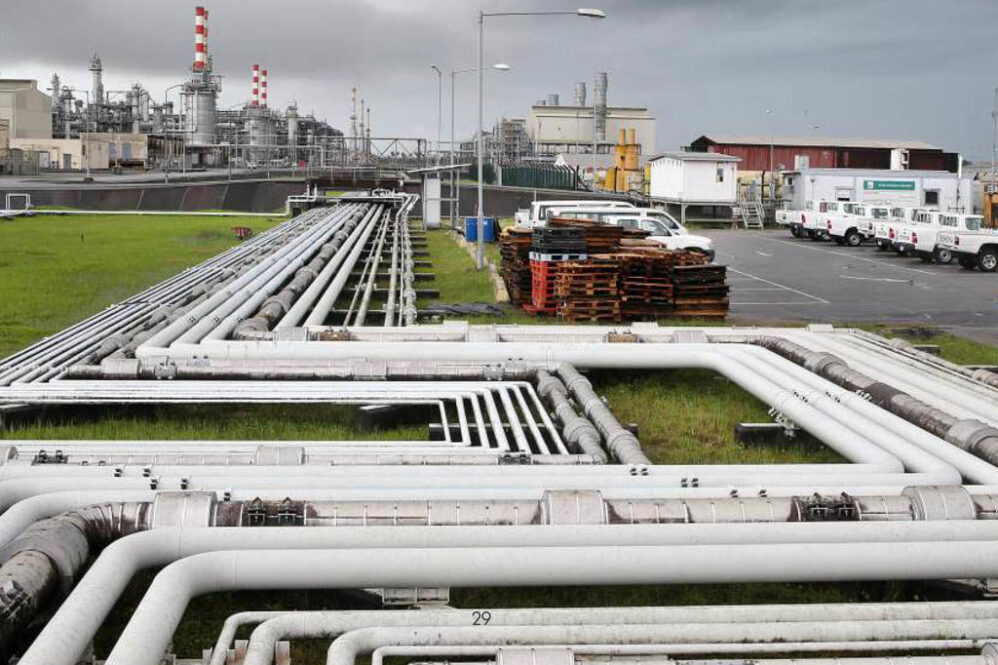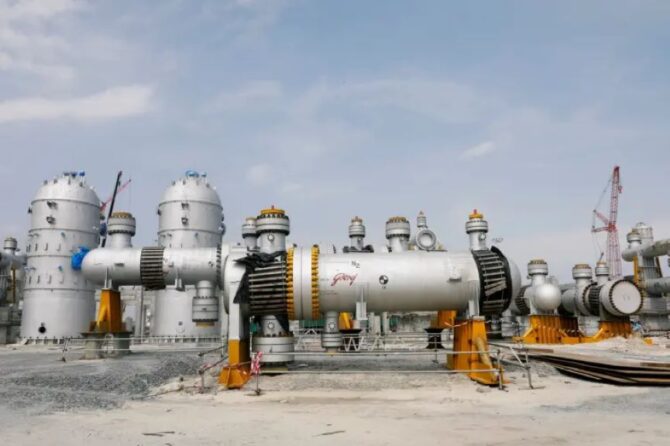Nigeria LNG Struggles Amid US Gas Surge: Competition and Security Challenges
LAGOS — Nigeria’s Liquefied Natural Gas (LNG) sector faces mounting challenges as a surge in global LNG production, led by the United States and Qatar, threatens to create an oversupply in the market. Combined with persistent pipeline vandalism in the Niger Delta and declining European demand, Nigeria’s LNG exports are under significant pressure, raising concerns about the country’s ability to maintain its market share and revenue streams.
Global Market Pressures: The US and Qatar Factor
The International Energy Agency (IEA) projects an “unprecedented surge” in global LNG production between 2025 and 2030, with the US and Qatar leading the charge. This increase will add over 250 billion cubic meters of new capacity annually, equivalent to 45% of today’s total global LNG supply. While this expansion is expected to stabilize prices after recent volatility, it also risks creating a supply glut that could drive prices down by nearly 80% by 2030, from $32.3 per million British thermal units (mmbtu) in 2022 to $6.9 mmbtu.
For Nigeria, which relies heavily on LNG exports for foreign exchange earnings, this oversupply presents a significant challenge. Mature markets like Europe are entering structural decline, while emerging markets may lack the infrastructure to absorb larger volumes of LNG. This leaves Nigeria competing in a crowded market with shrinking opportunities.
Security Threats and Pipeline Vandalism
Domestically, Nigeria’s LNG operations are hampered by persistent pipeline vandalism and sabotage in the Niger Delta region. Nigeria LNG Ltd., the country’s leading LNG exporter, reported a 20% drop in exports earlier this year due to disruptions caused by vandalism. Sophia Horsfall, General Manager for External Relations at NLNG, highlighted how these attacks have curtailed gas supplies to processing plants, delaying shipments by up to 10 days.
- Impact on Exports: The disruptions have forced NLNG to declare force majeure multiple times since 2022, releasing it from contractual obligations due to unforeseen circumstances.
- Government Response: NLNG continues to engage with feed gas suppliers and government security agencies to improve security around vital infrastructure. However, progress has been slow.
Economic Implications for Nigeria
- Revenue Decline: Oil revenues have historically accounted for about two-thirds of government earnings and 90% of foreign exchange income. With oil production declining due to underinvestment and insecurity, LNG was expected to fill the gap. However, LNG revenues accounted for just 7% of total government revenues in 2023.
- Stranded Assets Risk: Research from the International Institute for Sustainable Development (IISD) warns that Nigeria’s push to expand LNG production could result in stranded assets as global demand peaks this decade and declines thereafter.
- Investment Challenges: Nigeria plans to invest NGN 28.3 trillion ($18.5 billion) in nine new LNG terminals by 2030. However, experts argue that replacing oil revenues would require an exponential increase in LNG exports—an unlikely scenario given current market dynamics.
Calls for Diversification
Experts emphasize the need for Nigeria to diversify its economy away from fossil fuels:
- Transition Planning: IISD advises that Nigeria align its gas ambitions with global energy transition plans and prioritize sustainable energy sources.
- Domestic Energy Needs: Despite its status as a major LNG exporter, Nigeria struggles with domestic energy access. Expanding renewable energy sources could address local electricity challenges while reducing dependence on volatile global markets.
Bathandwa Vazi, Policy Advisor at IISD, stated:
“Nigeria’s reliance on fossil fuels is short-term thinking that could cost the country dearly in the long run.”
The Path Forward
To remain competitive globally while addressing domestic challenges, Nigeria must focus on:
- Improving Security: Strengthening security around pipelines and gas infrastructure is critical to maintaining consistent supply.
- Regulatory Stability: Clearer fiscal policies are needed to attract investment amid growing competition from other gas-producing nations.
- Economic Diversification: Investing in renewable energy and other non-fossil fuel sectors will ensure long-term economic stability.
As international demand for fossil fuels declines post-2030, Nigeria faces a critical juncture in balancing immediate revenue needs with long-term sustainability goals.

















